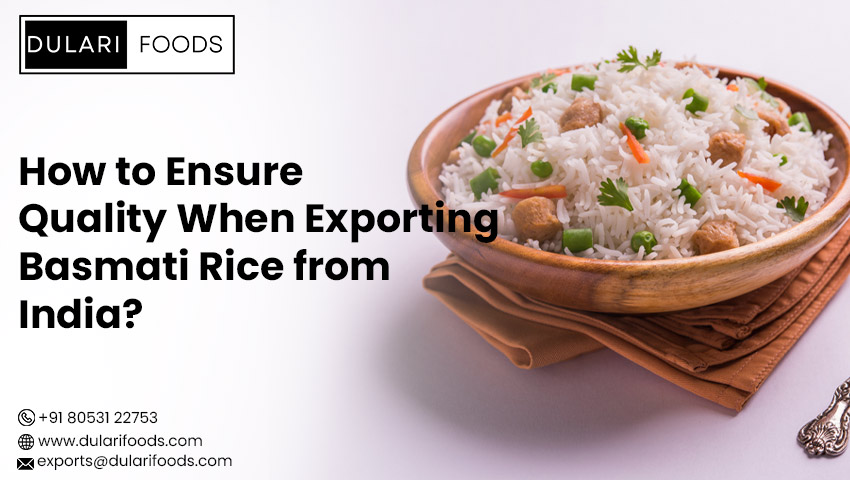Understanding the market demand for Basmati rice exports
When it comes to trading in an international market, it is important to understand the real market demand for top-quality Basmati rice exports for better growth opportunities. Basmati rice, best known for its long grains, distinctive aroma, and delicate flavor, holds a special place in the culinary preferences of consumers worldwide. To capitalize on this demand, exporters must delve into the intricacies of market trends, consumer preferences, and quality standards.
One of the key factors driving the demand for top-quality Basmati rice is the increasing globalisation of cuisines. As people around the world become more adventurous with their culinary choices, there’s a growing appreciation for authentic ingredients like basmati rice that elevate the dining experience. This trend is particularly evident in Western countries, where multiculturalism has led to a surge in demand for exotic and premium food products.
Moreover, health-conscious consumers are gravitating towards basmati rice due to its perceived health benefits. With a lower glycemic index compared to other varieties of rice, basmati is often favored by individuals following specific dietary regimes such as low-carb or diabetic-friendly diets.
Selecting the finest Basmati rice grains for export
Exporting good-quality basmati rice grains is a task that should be done with quitea bit of dedication. Here are the steps that can help in selecting the finest basmati rice grains for export.
- Source from reputable suppliers: Start by establishing relationships with reputable Basmati rice producers or suppliers known for their commitment to quality. Conduct thorough research to identify suppliers with a proven track record of producing premium Basmati rice.
- Understand Grading Standards: Familiarize yourself with the grading standards set by relevant regulatory authorities or industry associations. These standards typically define parameters such as grain length, aroma, purity, and moisture content that determine the quality of Basmati rice.
- Inspect physical characteristics: Physically inspect the basmati grains to assess their appearance and uniformity. Fine Basmati grains should exhibit long, slender grains with a pearl-like translucency and minimal breakage. Look for grains that are free from discoloration, blemishes, or foreign matter.
- Evaluate Aroma: A distinctive aroma is one of the hallmark characteristics of premium Basmati rice. Grains should emit a fragrant aroma reminiscent of sweet, nutty notes when gently rubbed or heated. Avoid grains with musty or off-putting odors, as they indicate inferior quality.
- Check Texture and Feel: Fine Basmati grains should have a firm yet tender texture, with each grain retaining its individual integrity without being overly dry or brittle. Run your fingers through the grains to assess their smoothness and feel, avoiding those that feel excessively rough or gritty.
- Conduct Cooking Tests: Prepare a sample of Basmati rice by cooking it according to recommended methods. Assess factors such as grain elongation, fluffiness, and non-stickiness to gauge the cooking quality of the rice. Fine Basmati rice should cook to perfection, with grains retaining their elongated shape and distinct texture.
Secure certifications and compliance with international standards
Securing certifications and working with international standards is important for exporters to showcase the quality and safety of their products globally. Firstly, it’s important to identify the necessary certifications for your product and target markets. This could include ISO certifications, HACCP, or GMP. Understanding the specific requirements for each certification is key.
Make sure that your documentation accurately reflects compliance with these standards. Collaborate with accredited certification bodies to conduct audits and inspections. Address any identified non-conformities promptly and implement corrective actions. You will receive the certifications once you meet all requirements, and you should prominently display them. Regularly review and update your processes to maintain compliance.
Building strong relationships with suppliers and buyers
After completing all the certifications, it is important to build a strong relationship with suppliers and buyers for the prominent growth of the business. For suppliers, maintain open communication, honor commitments, and collaborate on improvements.
With buyers, understand their needs, provide excellent service, and seek feedback for continuous improvement. By prioritizing long-term partnerships, delivering value, and fostering mutual respect, businesses can cultivate enduring relationships that benefit all parties involved.
Conclusion: Ensuring success in Basmati rice exports
While exporting high-quality basmati rice, it is important to have a proper look at every aspect. If you are searching for reliable basmati rice exporters, you can join hands with Dulari Foods, one of the top basmati rice exporters in India.
We believe that every meal is an opportunity to make memories. Our passion is to provide the best rice varieties to enhance your cuisine and introduce you to global flavors.




